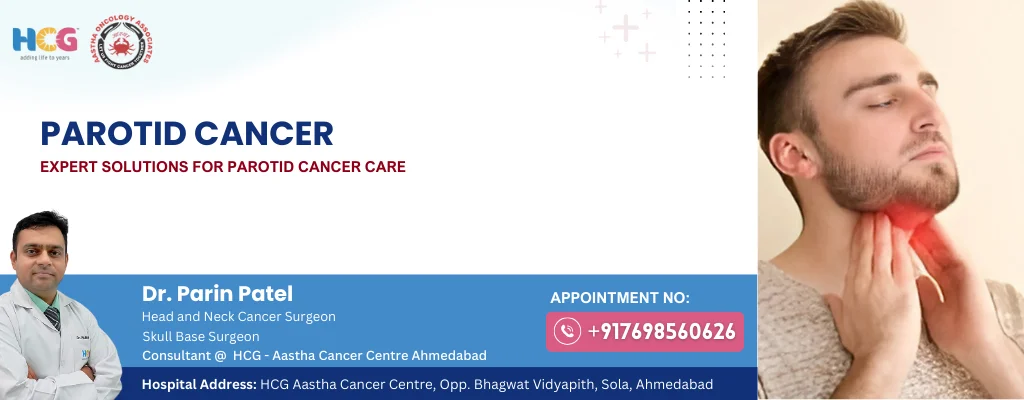
The parotid glands, the largest of the salivary glands, are found on either side of the face, immediately in front of the ears. These glands produce saliva, which aids in digestion, keeps the mouth moist, and promotes oral hygiene by neutralizing acids and washing away food particles. The parotid glands generate saliva, which contains enzymes that initiate the breakdown of carbohydrates in the mouth. The parotid glands contain ducts that transport saliva from the glands to the inside of the cheeks, near the upper teeth. Infections, tumors, and obstructions can all result from parotid gland problems, necessitating medical treatment.
Variety of disorders associated to the parotid gland, including:
A Head and Neck Oncologist conducts a thorough evaluation to diagnose parotid gland issues, identifying causes like swelling, pain, or facial paralysis. Advanced imaging techniques such as CT scans, MRIs, and ultrasounds help detect tumors, blockages, or infections by assessing their size, location, and nature. A fine needle aspiration (FNA) biopsy may be performed to determine if a tumor is benign or malignant. Additionally, a physical examination is conducted to evaluate facial nerve function and detect any other symptoms for accurate diagnosis and effective treatment planning.
Parotid gland surgery is usually done under general anesthesia to keep the patient comfortable and pain-free. A small incision is made toward the front of the ear, usually following natural skin folds to reduce scarring. The surgeon then carefully exposes the parotid gland and removes any malignancies or damaged tissue. In certain circumstances, half of the gland is removed (partial parotidectomy), whereas in more severe cases, the entire gland (total parotidectomy) may be removed.After surgery, the wound is closed, and patients usually recover within a few days. If the gland is completely destroyed, lifelong saliva replacement therapy may be required.
Dr. Parin Patel has more than 12 years of specialized experience treating and surgically managing parotid gland problems. As a best head and neck surgeon in Ahmedabad, he has successfully treated a variety of parotid gland-related disorders, including tumors, infections, and obstructions. Dr. Patel is an expert at performing parotid surgery, including partial and total parotidectomy, with an emphasis on preserving facial nerve function to avoid future facial weakness or paralysis.If you have question regarding Parotid gland then feel to contact Dr.Parin Patel.
Our surgeries
Dr. Parin Patel's Other Visiting OPDs
HCG Hospital Road, nr. Aastha Avenue, off 150 Feet Ring Road, Puneet Nagar, Ayodhya Chowk, Rajkot, Gujarat 360006
2nd Saturday of Every Month
10:00 A.M. To 12:00 P.M.
GIDC Main Rd, behind Shree Swaminarayan Sanskardham, Sardar Nagar, Morbi, Gujarat 363641
2nd Saturday of Every Month
02:00 P.M. To 03:00 P.M.
© 2025 Dr. Parin Patel. All Rights Reserved